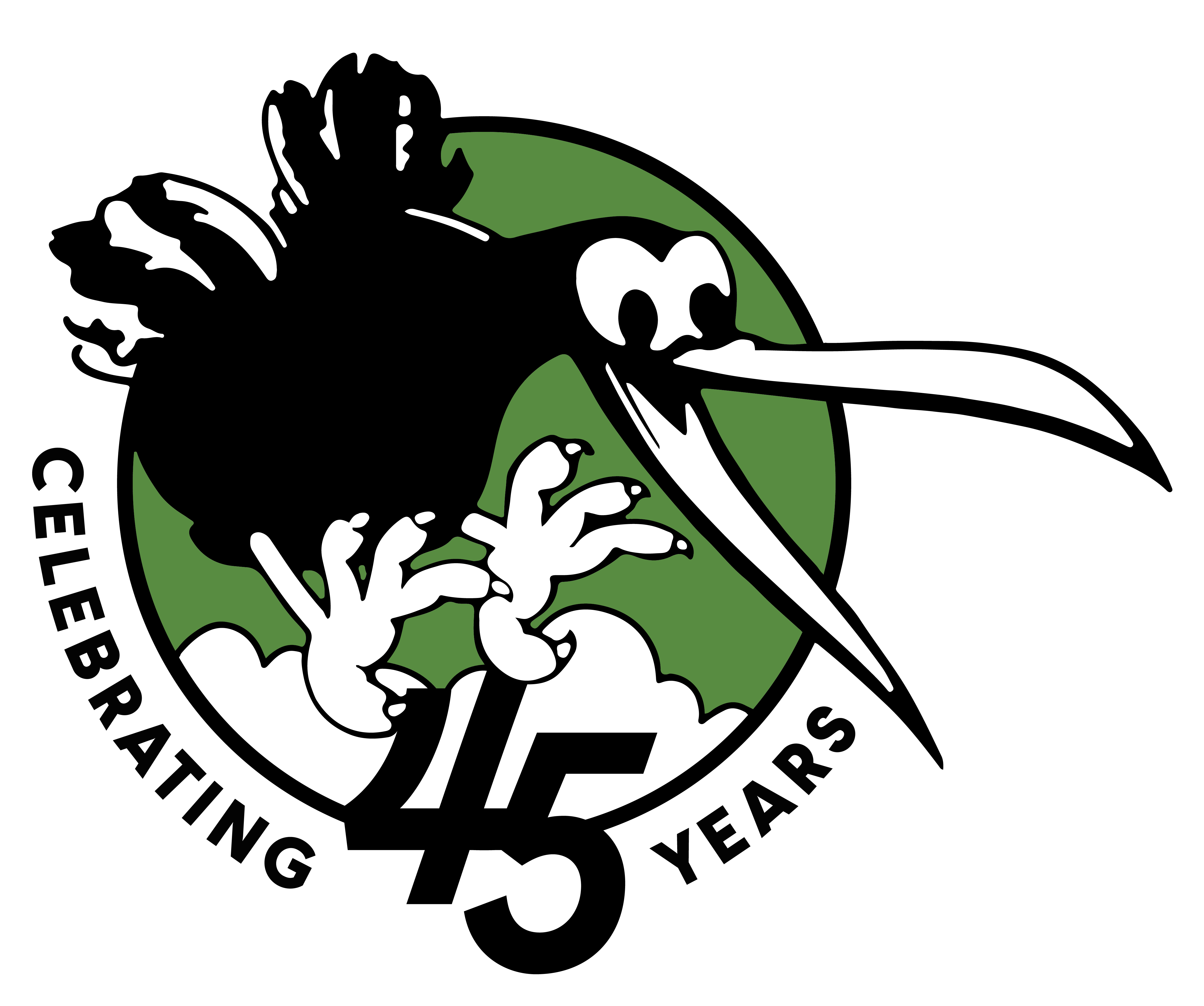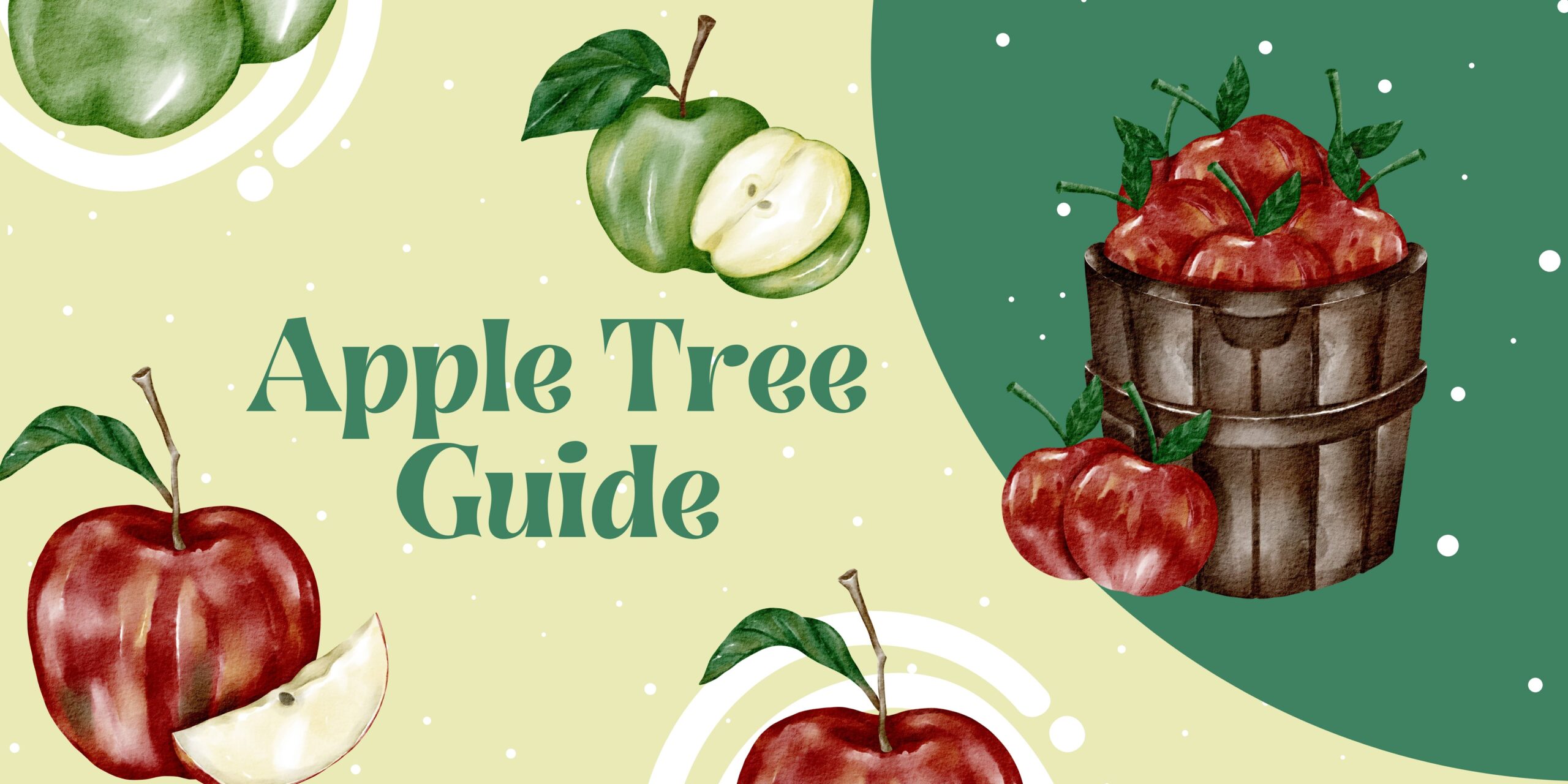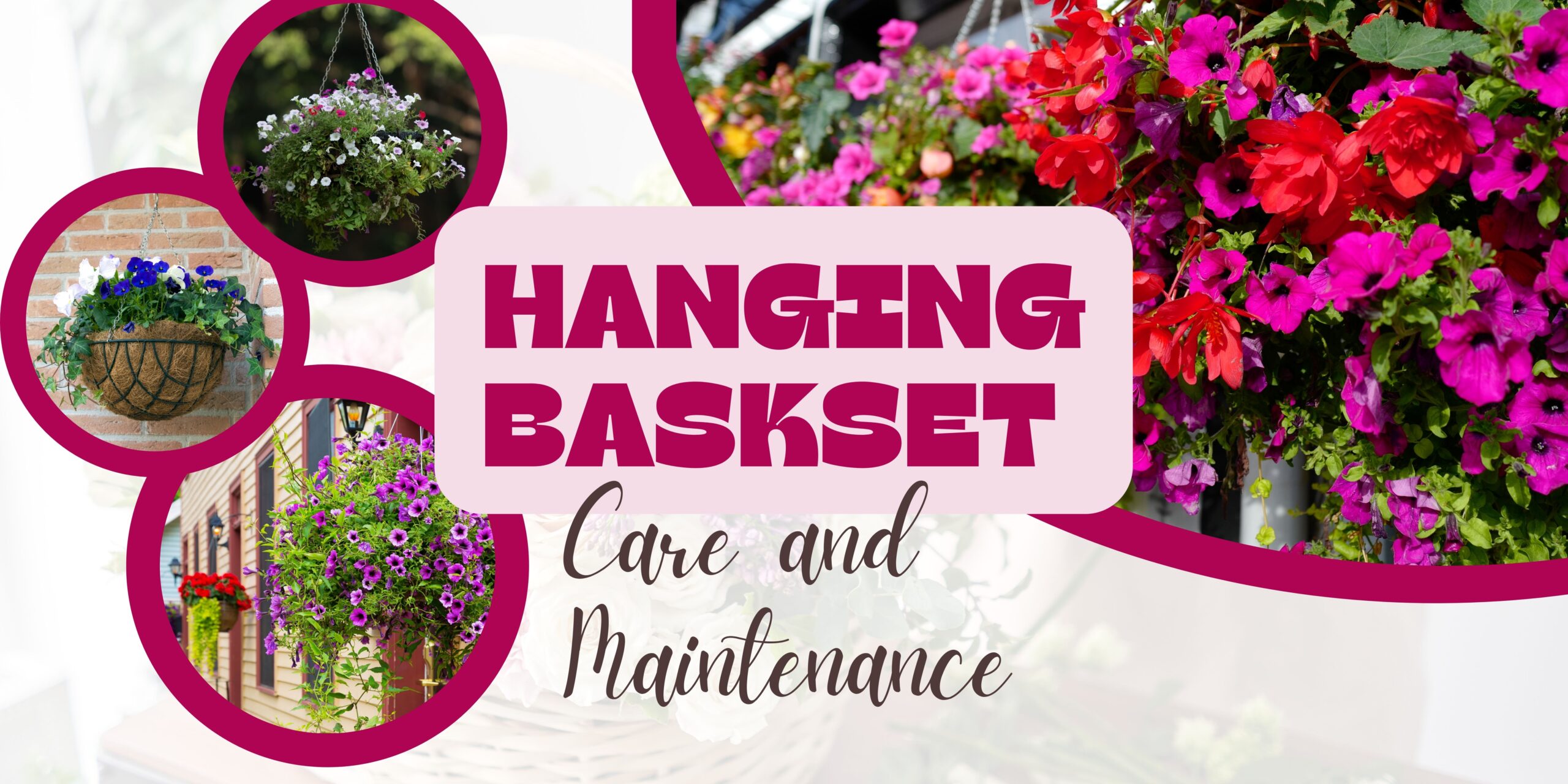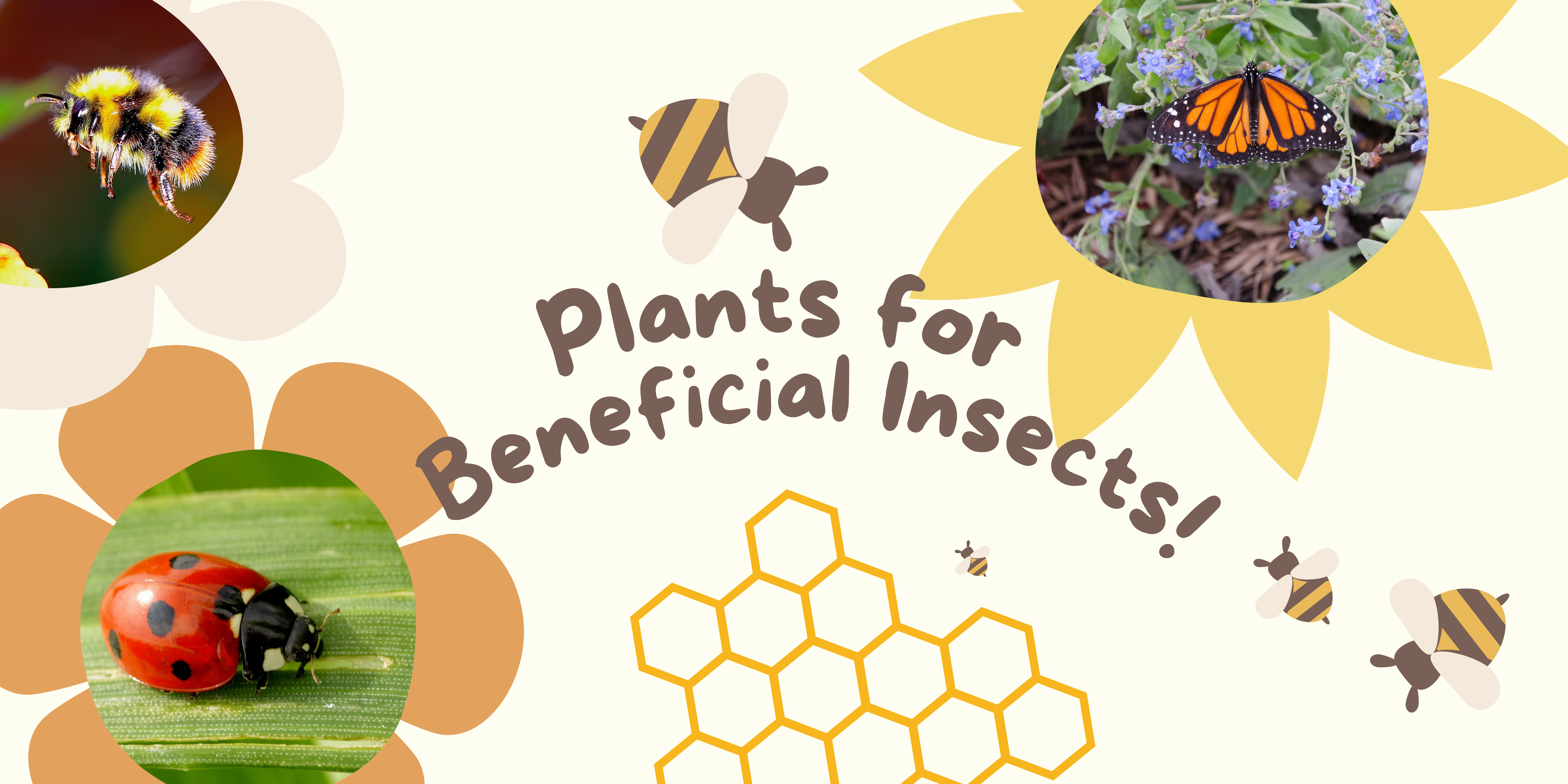Apple Trees
Apple trees average 15-20 ft in height and 12-16 ft in spread, display large canopies of abundant white, fragrant blossoms in spring. Edible apple trees require cross-pollination to bear fruit. Two different varieties of apples, also including crabapples or pears, must be in bloom at the same time within two city blocks (or 500 feet) of each other for pollination to occur. Luckily all apples flower in spring. Apples love full sunlight and moist well drained soil. They also need to have proper nutrition for the best fruit production.
Care
Apple trees produce the best apples when they have proper nutrition and will require yearly fertilizing. For newly planted trees, we recommend planting with Myke or a 10-52-10 water soluble fertilizer to ensure your tree has adequate nutrition for root growth to maintain production later on. For more mature trees, a 20-20-20 all purpose fertilizer can be used or a top dressing of sea soil.
Like with any plant apple trees will do best if planted correctly and with enough nutrition, if you have a lot of clay in your yard be sure to purchase extra soil to put around the roots to give your tree something nutritious to grow in to. For more information on how to plant your tree you can find our planting instructions HERE
Season
There are early, mid and late season apples that grow in our climate. Early season apples typically produce in Late July to mid-August, mid season apples produce in mid-August to Early September and Late season produce in September to October. Production time will depend on the weather, the planting location and the variety planted.
Early Season Apples
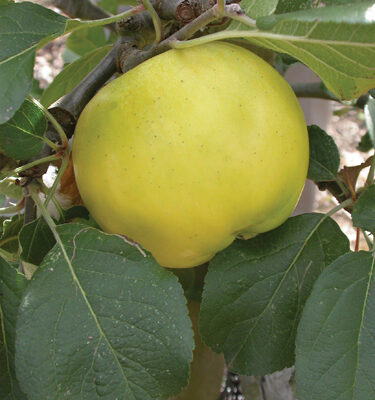
Heyer #12 Apple
Malus ‘Heyer #12’
A hardy medium sized early-season (late August) apple. The yellow apples are good for eating and excellent for cooking, but a poor storage apple. Features showy clusters of lightly scented white flowers in mid-spring.
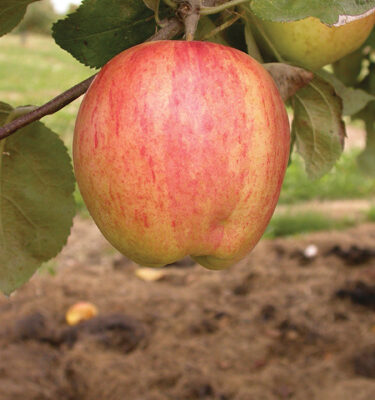
Norland Apple
Malus ‘Norland’
An early-season (late August) green apple with red striping and a rounded form. The apples are good for eating, and cooking, and storage.
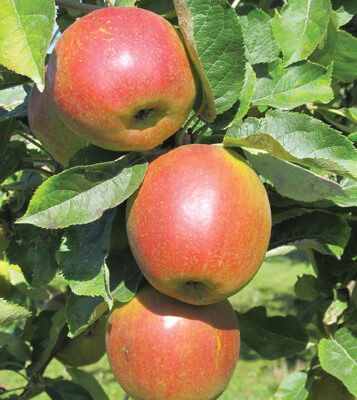
Parkland Apple
Malus ‘Parkland’
An early-season (late August) greenish yellow apple with a red blush and a rounded form. The apples are good for eating, and cooking, and storage. Features showy clusters of lightly scented white flowers in mid-spring.
Mid Season Apples
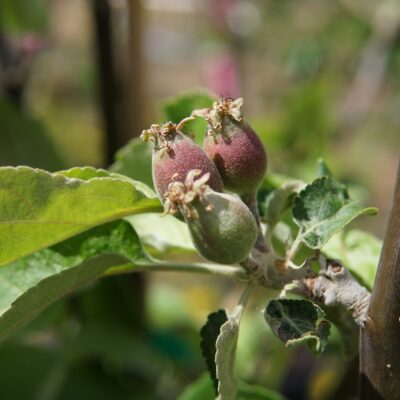
Battleford Apple
Malus ‘Battleford’
A mid to late season, hardy green-yellow apple splashed with red. Ideal for cooking and storing, apples have a tart taste and firm texture.
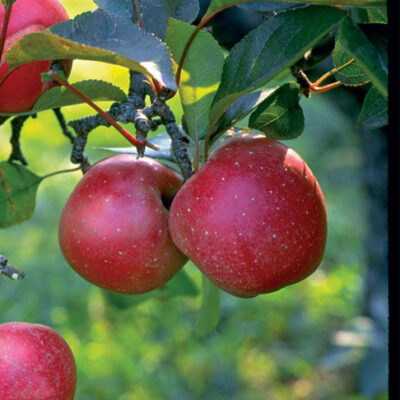
Harcourt Apple
Malus ‘Harcourt’
An excellent, crisp, hardy, red apple with a sweet and juicy flavour and a rounded form. The red apples are excellent for eating, good for cooking, and excellent for storage (up to 6 months). Read More
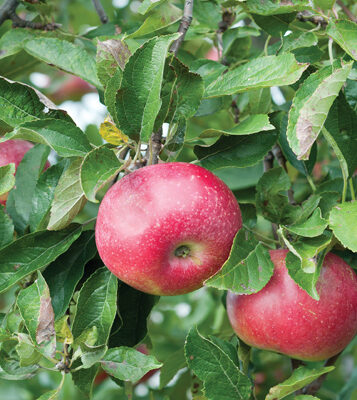
Hardi-Mac Apple
Malus ‘Hardi’Mac’
A hardy, bright red mid-season (mid-September) apple. The red apples are good for eating, and cooking, but only a fair storage apple.
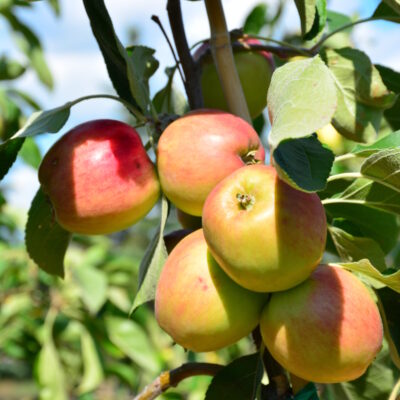
September Ruby Apple
Malus ‘September Ruby’
A mid-season (mid-September) red apple. The apples are good for eating, fair for cooking, and good for storage. Read More
Late Season Apples
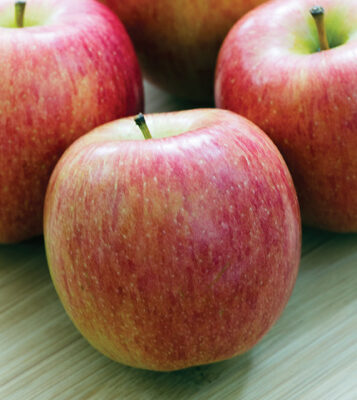
Norkent Apple
Malus ‘Norkent’
A very hardy and juicy green apple with red striping and a rounded form. A late-harvest (late September) apple which is good for eating, and cooking. Not a good storage apple unless harvested under-ripe. Read More
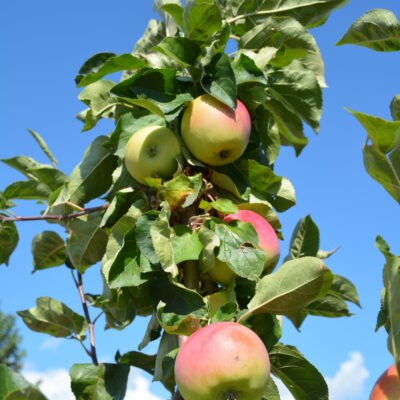
Goodland Apple
Malus ‘Goodland’
A very hardy late-season green apple with a reddish blush. High quality which is great for eating, cooking, and storage. Features showy clusters of lightly scented white flowers in mid-spring. Read More
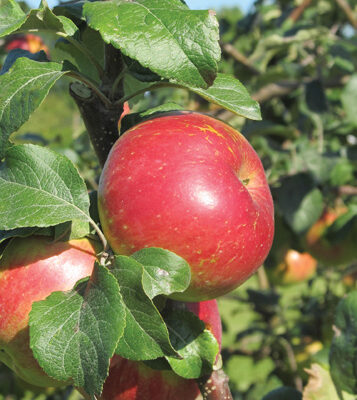
Fall Red Apple
Malus ‘Fall Red’
An excellent late-season hardy red apple with a rounded form. Good for eating, cooking, and storage. Read More
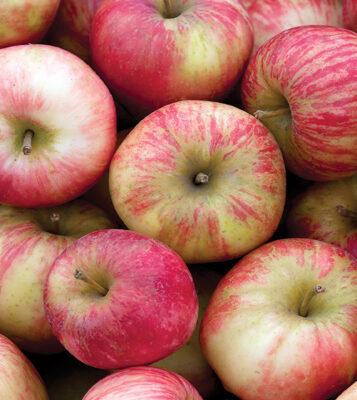
Honeycrisp Apple
Malus ‘honeycrisp’
An excellent, crisp, hardy, red apple with a sweet and juicy flavour and a rounded form. The red apples are excellent for eating, good for cooking, and excellent for storage (up to 6 months). Read More
 |
| 